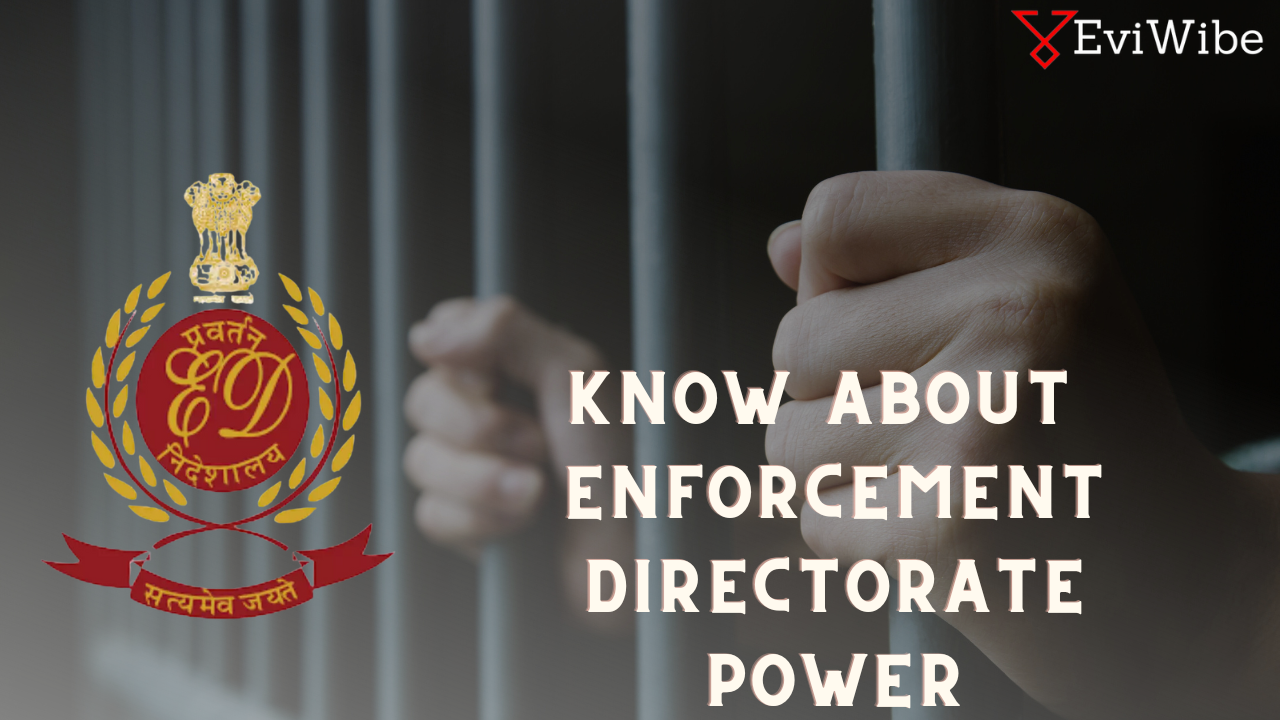The enforcement directorate is one of the most powerful agencies present in India to secure India with the laws. All the big people, politicians, actors, and businessmen, are afraid of ED. This department can enter any place in this country and gather the evidence required for their operations. How could they have such huge powers? Let me know in this post.
What is ED:
The enforcement directorate is an organization related to law enforcement and economic intelligence secret agency. ED is responsible for economic laws and economic crime prevention which occurs in India. This enforcement department is part of the Ministry of Finance and the Department of Revenue of the Indian Government.
The officers in this department are from the Revenue Department of India, the police department, and the Indian Administrative Department. And also the state department can depute some of its brilliant officers to the ED based on their performance records.
ED has spread its vigilance throughout the country with multiple offices across the states. They have branch quarters in Meghalaya, Karnataka, Sikkim, Tripura, and Manipur.
What ED does:
ED, a specially administrated intelligence agency, ensures the protection of the Foreign Exchange Management Act 1999 (FEMA), Prevention of Money Laundering Act 2002 (PMLA), and the Fugitive Economic Offender Act 2018. Individuals or organizations disobeying these laws and engaging in any form of activity are considered perpetrators of criminal or civil offenses. They further investigated by ED and punished. FEMA and PMLA are the only two main acts that the ED is responsible for.
FEMA:
This is a civil law that looks upon the illegal transactions occurring in foreign exchange currencies. The people who performs this kind of act will punished.
PMLA:
This is a criminal law that looks upon illegal transactions such as black money storing, and converting black money to white through different sources.
In these two cases, the money or the assets that are collected from the accused are attached to the government.

ED powers:
We know the Indian government has CBI, CID, and IT departments that focus on the crimes and illegal money dealing within India. But ED has the most special power they have.
Any police CBI or IT departments need to seek prior permission from the court and also from the individual whom they want to check their houses or offices. But ED without any permission from courts and also without permission of the individual can raid their offices and houses.
Any other agency possesses the authority to record the statement of an accused. However, in a court of law, the statement recorded by the accused is not deemed as evidence. It is incumbent upon the police or CBI to gather corroborative evidence that bolsters the recorded statement. In contrast, in the case of the ED, the statement recorded by them serves as evidence. Even if the information provided during the statement is later proven to be incorrect, the accused can still be penalized for providing misleading information.
While it is widely acknowledged that in the court of law in India, individuals are innocent until proven guilty, the dynamics shift when it comes to cases handled by the Enforcement Directorate (ED). In such instances, the approach often tends to be the reverse. Individuals are guilty until proven innocent. He needs to prove his innocence.
Know about most trending topic in India about the political parties got funds through electoral bonds.
Know private banks present in India over the years serving the people. Loans and other causes are leading to farmers deaths and protests. Know about the India biggest farmers protest in Delhi.
Travel only in the safest cars of India.




One thought on “ED most powerful intelligence agency for protecting laws”